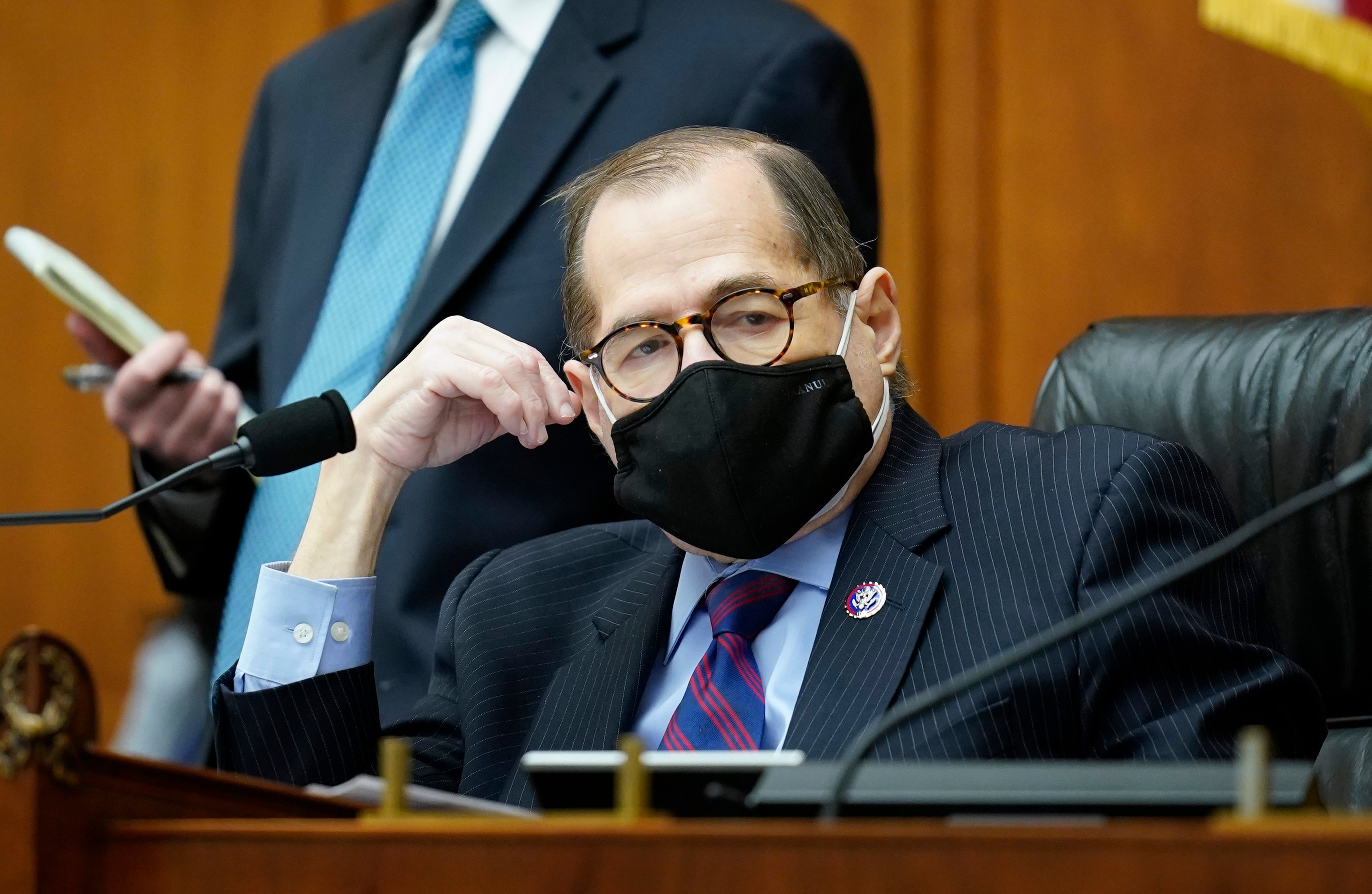House votes to curb power of presidency on travel bans
The Democratic-led House has passed legislation to constrain a president’s power to limit entry to the U.S. The vote Wednesday was a response to former President Donald Trump’s travel ban covering five Muslim-majority countries

Your support helps us to tell the story
From reproductive rights to climate change to Big Tech, The Independent is on the ground when the story is developing. Whether it's investigating the financials of Elon Musk's pro-Trump PAC or producing our latest documentary, 'The A Word', which shines a light on the American women fighting for reproductive rights, we know how important it is to parse out the facts from the messaging.
At such a critical moment in US history, we need reporters on the ground. Your donation allows us to keep sending journalists to speak to both sides of the story.
The Independent is trusted by Americans across the entire political spectrum. And unlike many other quality news outlets, we choose not to lock Americans out of our reporting and analysis with paywalls. We believe quality journalism should be available to everyone, paid for by those who can afford it.
Your support makes all the difference.The Democratic-led House passed legislation Wednesday designed to constrain a president’s power to limit entry to the U.S., a response to former President Donald Trump’s travel ban covering five Muslim-majority countries.
President Joe Biden reversed the travel restrictions from the Trump administration in one of his first moves in office, easing limits on Iran, Libya, Somalia, Syria and Yemen, as well as North Korea and some government officials from Venezuela. But Democrats say Congress has a responsibility to prevent future administrations from enacting similarly broad restrictions.
The bill passed the House by a vote of 218-208. It is unlikely to advance in the evenly split Senate, with Republicans broadly opposed.
Rep. Jerrold Nadler, the Democratic chairman of the House Judiciary Committee, said presidents from both parties have used their authority to exclude narrow groups of people from entering the U.S, such as certain North Korean officials. “But former President Trump abused this authority, twisting it in ways that were never intended.”
The White House announced its support for the measure earlier this week. “The prior Administration’s haphazard misuse of this authority highlights the need for reasonable constraints," it said.
Trump had proposed a broad, all-encompassing Muslim ban during the presidential campaign. Within a week of him taking office in early 2017, the first travel ban was announced with little notice, causing chaos at airports and sparking protests across the nation.
The Trump administration was forced to revise its original order twice to resolve legal problems concerning due process, implementation and exclusive targeting of Muslim nations.
In 2018, the Supreme Court upheld the ban in a 5-4 decision. It determined that the ban was within a U.S. president’s considerable authority over immigration and responsibility for keeping the nation safe.
Republicans said Trump’s actions were not a Muslim ban. Rather, he was seeking to secure the United States from terrorists. They said the ban was limited to countries that were previously designated by Congress or prior administrations as posing national security risks.
They also noted that the ban affected only a fraction of Muslim-majority countries.
“Do not listen to repetitions and lies about Muslim bans when it is not true,” said Rep. Chip Roy, R-Texas.
“The president said he was going to impose a Muslim ban, and he did,” Nadler countered.
Under the House bill, sponsored by Rep. Judy Chu, D-Calif., the secretaries of state and homeland security must first determine that the entry of certain aliens would undermine national security or public safety before the president could order a temporary travel restriction.
Republicans called that requirement a “constitutional absurdity.”
“You know, in this bill, the president may only act if the secretary of state allows him to act, and that is backwards,” said Rep. Andy Biggs, R-Ariz.